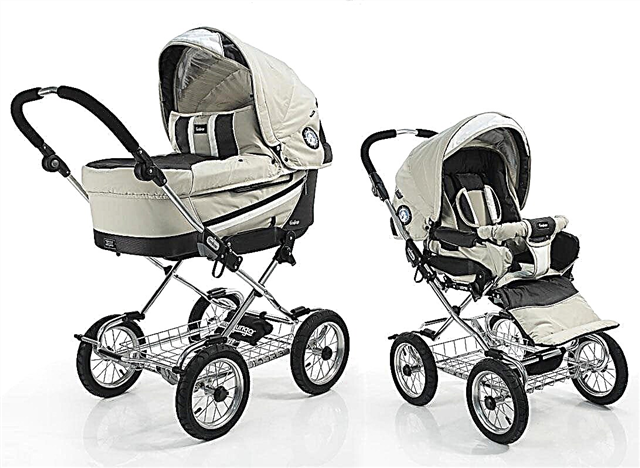Most of the inhabitants of Russia have met with chickenpox, which mainly affects children. The idea that chickenpox is a harmless childhood infection, and that it is preferable to get sick with it, than to prevent the disease, is firmly ingrained in people's minds.
Question: "Is the chickenpox vaccine necessary for children?" - is the source of endless debate. It is an individual choice whether to give the child the chickenpox vaccine or not. Vaccination does come with risks, so a decision must be made.
Doctors and nurses tend to be on the side of immunization, while alternative medicine advocates and some informed parents are on the side of the vaccine. No one can tell you what is best in your situation, so it is optimal to be informed, educated and analyze the issue yourself before making a final decision.
The varicella-zoster virus causes primary, latent, and recurrent infections. Primary infection manifests itself as chickenpox and results in a lifelong latent neuronal infection. The reactivation of the latent infection causes herpes zoster. Although it is often a mild childhood illness, chickenpox can cause significant morbidity and mortality in healthy children, and the virus also predisposes to severe infections with group A streptococcus and Staphylococcus aureus.
Primary clinical disease can be prevented by immunization.
Chickenpox vaccination is one easy and safe way to protect yourself from chickenpox. It is safe and prevents disease. Even if a vaccinated child becomes infected with the virus, chickenpox in vaccinated children is mild, with only a few red spots or vesicles.
What are the benefits of the chickenpox vaccine for children?
This seems overkill, since chickenpox in children is usually a relatively mild disease. And some parents choose to let their children get chickenpox so they can get immunity naturally.

But most experts now recommend the chickenpox vaccine and here's why.
- When a child gets chickenpox, they develop an itchy rash, painful blisters. All this is accompanied by weakness and fever. If the blisters become infected, the child may need antibiotics. Blisters can also leave lifelong scars, possibly even on a child's face. If the baby is attending kindergarten or school, then he will have to stay at home until all the bubbles are covered with a crust.
- Chickenpox can be serious and even fatal. Prior to vaccination, the virus caused about 10,600 hospitalizations and 100,150 deaths per year. Complications were serious skin infections and pneumonia. Most of the deaths occurred in previously healthy people.
- The vaccine protects the child from the worst. Vaccines are 98% effective, and immunized children who become ill have only very mild symptoms. This usually means less than 50 elements of the rash, no fever, and a quick recovery.
- The vaccine will help protect your child from a disease associated with chickenpox called herpes zoster. About 1 in 3 adults who have chickenpox develop extremely painful and disfiguring blisters.
- The vaccine contains a live attenuated virus. This means that it contains a live virus, modified so that it does not cause illness in children. However, the body's immune system still reacts to the foreign agent, providing protection against disease.
Shingles develops when the varicella-zoster virus, which lives in the central nervous system for life, reactivates.
People who have been immunized for chickenpox can still develop herpes zoster, but in a milder form.
In general, live vaccines provide better protection against infections (compared to other vaccine categories), but can sometimes cause illness, especially in people with severely weakened immunity.
Vaccination schedule
 Babies are born with protective maternal antibodies to chickenpox. The half-life of these antibodies is about 6 weeks, and most babies have very low levels after 5 months of age.
Babies are born with protective maternal antibodies to chickenpox. The half-life of these antibodies is about 6 weeks, and most babies have very low levels after 5 months of age.
But the varicella vaccine is recommended after 1 year.
Chickenpox vaccine is given to young children in two doses, the first between 12-15 months and a booster between 4-6 years.
Children over the age of 13 who have never had chickenpox or have not been immunized should receive two doses with a minimum interval of 28 days.
Contraindications for vaccination against chickenpox
Some children should not receive varicella vaccination or should be postponed:
- the vaccine should not be given if the child has had a life-threatening allergic reaction to a previous dose of chickenpox vaccine or to any of its components, including gelatin or neomycin;
- when a child is moderately or severely ill, it is necessary to wait until he or she is well before being vaccinated against chickenpox;
- the condition of children with the following conditions should be assessed by a doctor for the possibility of vaccination against chickenpox:
- The child has AIDS or other pathologies that affect immunity;
- The child is treated with medications that affect the immune system (for example, steroids) for 2 weeks or more.
- The child has some type of cancer.
- The child is being treated for cancer with radiation or drugs.
You should ask your doctor about the possibility of vaccinating children who have received blood transfusions or if they have received other blood components.
Side effects
As with other vaccines, side effects from chickenpox vaccination are possible. However, not everyone who receives the vaccine will have problems. In fact, most children tolerate the vaccine quite well. If side effects do occur, in most cases they are mild and do not need treatment.
Serious adverse reactions associated with chickenpox vaccine
There are a number of rare but serious side effects that you should report to your doctor.
These include:
- heat;
- any unusual changes in the child's behavior (in addition to the usual moodiness that occurs after vaccination);
- febrile seizures;
- unusual bruising or bleeding, which is a sign of low platelet counts;
- weakness, tingling sensation, or paralysis of the limbs. Perhaps this is a sign of Guillain-Barré syndrome;
- pneumonia.

Signs of an allergic reaction such as:
- unexplained rash;
- hives;
- itching;
- swelling of the mucous membrane in the nasal cavity or throat;
- wheezing;
- labored breathing.
Typically, these serious problems are so rare that it is impossible to know if they are actually vaccine related.
Common adverse reactions
The chickenpox vaccine has been extensively studied in clinical trials in which all possible side effects are monitored and recorded.
In these studies, the most common side effects were:
- reactions at the injection site (redness, pain or swelling) - up to 32.5% of children;
- fever - up to 14.7%;
- rash like chickenpox - up to 5.5%.
Other common side effects (occurring in 1% of children, although exact percentages were not reported) included:
- upper respiratory tract damage (eg, colds);
- headache;
- fatigue;
- cough;
- muscle pain;
- disturbed sleep;
- nausea;
- general poor health;
- diarrhea;
- stiff neck muscles;
- irritability or nervousness;
- enlarged lymph nodes that are sensitive to palpation;
- chills;
- loss of appetite;
- vomiting.
Drug interactions
Drug interactions can alter how drugs work or increase the risk of serious adverse reactions.
There may be an interaction between the chickenpox vaccine and any of the following drugs:
- antineoplastic or chemotherapy drugs (eg, methotrexate);
- corticosteroids (eg, dexamethasone, prednisone);
- Dimethyl fumarate;
- immune globulin;
- immunosuppressants (eg, Azathioprine, Cyclosporine);
- other live vaccines;
- salicylates (e.g. aminosalicylic acid).
If your child is taking any of these medicines, talk to the doctor. Depending on your specific circumstances, your doctor may ask you to stop taking one of the medicines or change one of the medicines for another.
An interaction between two medications does not always mean that you should stop taking one of them.
Drugs other than those listed above may interact with the vaccine. Tell your doctor about all medications and supplements your child is taking.
Chickenpox after immunization
After receiving a vaccine against the virus, chickenpox may develop. There are two situations where this can happen. The most common of these is the breakthrough of vaccine immunity. Very rarely, chickenpox can occur due to the chickenpox vaccine itself.
Breakthrough immunity
 No vaccine is 100% effective at preventing disease. Once vaccinated, some people (about 1 in 10 people) do not receive enough protection against chickenpox to completely prevent infection.
No vaccine is 100% effective at preventing disease. Once vaccinated, some people (about 1 in 10 people) do not receive enough protection against chickenpox to completely prevent infection.
8 to 9 out of 10 people who have been vaccinated are fully protected from chickenpox. A vaccine almost always prevents serious illness.
If a vaccinated child gets chickenpox, it is called a vaccine breakthrough. This infection is usually very mild, with fewer skin lesions lasting only a few days, no fever or low-grade fever, and some other chickenpox symptoms. Breakthrough infection occurs in 2% of vaccinations per year.
Vaccinated children who get chickenpox in such a mild form can transmit the disease to others who are not protected. Therefore, these children should remain at home until the blisters are crusted.
Chickenpox after the vaccine itself
A child can get chickenpox from the vaccine itself, but this is extremely rare. Registered only in healthy people three times out of 21 million doses of the vaccine. All three cases resulted in mild illness without complications.
What to do after vaccination?
- Wait 15 minutes before leaving the office where the vaccination was given.
- If a child has an allergic reaction, symptoms appear a few minutes after vaccination.
- If you notice any side effects, notify the vaccineer immediately. He will be able to help the child in the shortest possible time.
Home care
If your child develops redness, pain, or swelling at the injection site, apply a cold, wet compress to the child.
Use medicine for fever or pain as needed.
Medicines containing aspirin (acetylsalicylic acid) should not be given to children for 6 weeks after vaccination.
Chickenpox was so common that it became an integral part of growing up. Now, with vaccinations and a high level of immunity among the population, children should not have to deal with this so often. You need to keep vaccinating and protect your child from discomfort and symptoms.



